Search
Remove Ads
Advertisement
Summary 
Loading AI-generated summary based on World History Encyclopedia articles ...
Search Results
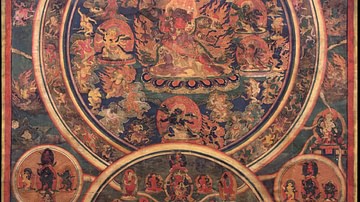
Definition
Tibetan Book of the Dead
The Tibetan Book of the Dead is the English translation of the Tibetan texts known as bar-do thos-grol (Bardo Thodol) – “Liberation Through Hearing During the Intermediate State” – and serves as a guide for the soul of the deceased after...
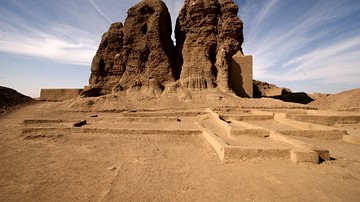
Article
Interrelations of Kerma and Pharaonic Egypt
The vacillating nature of Ancient Egypt's associations with the Kingdom of Kerma may be described as one of expansion and contraction; a virtual tug-of-war between rival cultures. Structural changes in Egypt's administration led to alternating...
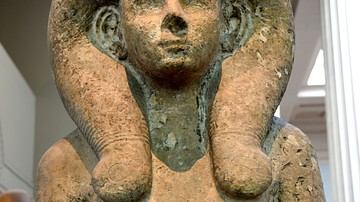
Definition
God's Wife of Amun
The position of God's Wife of Amun was one of the most politically powerful and spiritually significant in later Egyptian history. Elevated from a figurehead in the New Kingdom (c.1570-1069 BCE), the God's Wife of Amun would hold power equal...
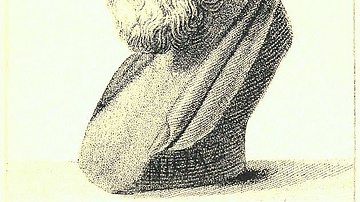
Image
Nicias
Bust of Nicias, Athenian politician (c. 470-413 BCE). Illustration from World's Famous Orations, Vol. 1. by William Jennings Bryan, Francis Whiting Halsey.
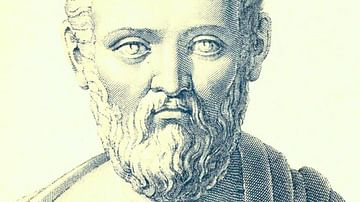
Image
The Bust of Isocrates
A bust of the Athenian orator Isocrates, from page 97 of World's Famous Orations, Vol 1, by William Jennings Bryan and Francis Whiting Halsey, 1906.
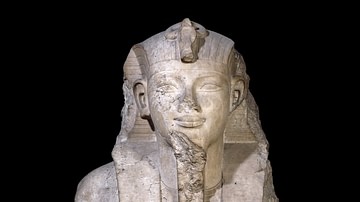
Image
Amenhotep III
From the mortuary temple of Amenhotep III, Thebes, Egypt 18th Dynasty, about 1350 BC Amenhotep III commissioned hundreds of sculptures for his mortuary temple on the west bank of the Nile at Thebes, though the precise original location...

Image
Donkin Tin Can
A Donkin tin can. The commercially viable tin can that preserved food was invented in 1811 by Bryan Donkin (1768-1855). Donkin built on the ideas of others to perfect a cheap and safe canning process. The idea was that soldiers, mariners...
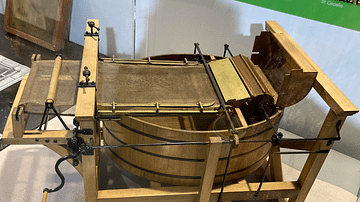
Image
Papermaking Machine
As with many inventions during the Industrial Revolution, the papermaking machine was something of a collaborative affair. This model is of one of the early machines developed by the Frenchman Nicholas Louis Robert (1761-1828) in 1799. The...

Image
Benedict Arnold
Engraving of Benedict Arnold by Henry Bryan Hall, after an original painting by John Trumbull; 1879.
National Archives and Records Administration.
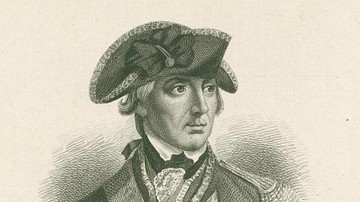
Image
Portrait of Sir William Howe
Portrait of Sir William Howe, British general during the American Revolutionary War. By Henry Bryan Hall, 1872.
New York Public Library, The Miriam and Ira D. Wallach Division of Art, Prints and Photographs: Print Collection.